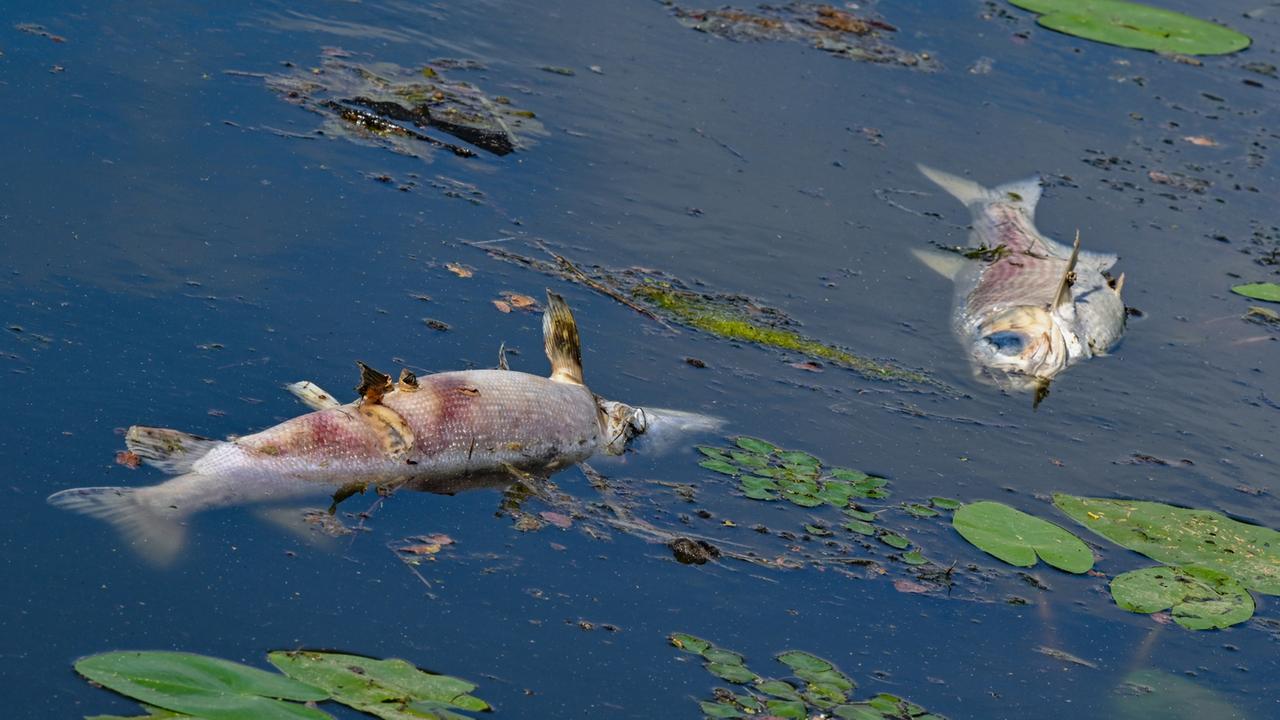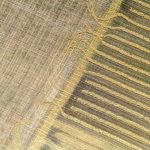Industrial wastewater and the summer heat are causing golden algae to sprout in Polish waters. To prevent fish from dying in the Oder, the Ministry of the Environment is using a dubious method.
People in white protective suits move along the shore, a sign indicates that fishing is prohibited. Polish media publish images showing large waste disposal containers and an army tent city – and in the middle of it all is the Polish Environment Minister Paulina Hennig-Kloska.
When she arrived near the Gliwice Canal at the weekend, the scene resembled something out of a disaster movie. The minister wanted to see how the counterattack against the golden algae could be carried out – with hydrogen peroxide. “We have stopped the flow of water containing golden algae into the Oder,” the minister explained optimistically.
Gold algae “neutralized up to 99 percent”
An experiment on the Kłodnica River showed that the chemical neutralized the gold algae by 95 to 99 percent. The Kłodnica is a small tributary of the Gliwice Canal, which in turn flows into the Oder.
Dangerously high concentrations of the golden algae have been measured in the canal since late spring. It is now in its second bloom and Poland is experiencing fish deaths again – not yet in the Oder, but so far in the canal and the Dzierżno Duże reservoir connected to it.
Fish deaths in the Oder: As early as 2022, up to 1,000 tons of fish and mussels had died. (Archive photo)
Good breeding ground for the golden algae
The golden algae thrive in these waters. “The water is polluted and salinized by industrial waters,” says Hubert Różyk, spokesman for the Ministry of the Environment. Large numbers of dead fish were recently found again. “The situation is now under control because the algae outbreak has been kept in the Dzierżno reservoir,” assures Różyk.
The golden algae (scientific name: Prymnesium parvum), which caused the great die-off in the Oder two years ago – it is still there and it will stay. The hot summers and the Polish industry, especially the mines, continue to discharge saline waste water. Since the beginning of August, a good 100 tons of dead fish have been recovered from the Dzierżno reservoir alone.
Greenpeace criticizes Wastewater discharge
Since mid-August, an experiment to combat the golden algae has been running on the Kłodnica River, into which the water from the Dzierżno flows. “We use hydrogen peroxide in a concentration that is neutral for other living things in the river, but which neutralizes the golden algae,” says the spokesperson for the Ministry of the Environment. The results are promising – at least in the experimental context.
Katarzyna Bilewska from Greenpeace Polska is much less enthusiastic. “Putting hydrogen peroxide into rivers and lakes is a drop in the ocean,” says the environmentalist. It will not produce long-term results. “The disaster has been going on for two years. It is not over because it is the result of mines dumping salty wastewater into the tributaries of the Oder,” criticizes Bilewska.
Fish deaths only shifted
Chemicals will not be able to save an entire ecosystem. Environment Minister Hennig-Kloska also does not see hydrogen peroxide as a long-term solution. A desalination plant is more likely to be needed. It is just unclear when and where.
So for the time being, the Oder will not be protected by chemicals or desalination, but by retaining the toxic water in the Gliwice Canal. The fish will die, just in a different place.





